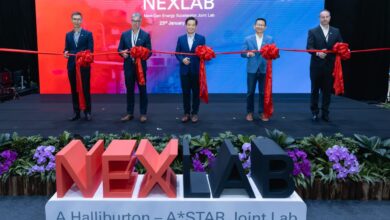Sangwongwanich: Industry can overcome challenges if it goes forward hand-in-hand

By Linda Hsieh, managing editor
“If you want to go fast, go alone. But if you want to go far, go together.” Citing this African proverb at an IADC conference in Bangkok last week, Kanit Sangwongwanich, senior VP of PTTEP’s technology and operations division, urged the industry to step up global collaboration in order to overcome the challenges ahead. “In the world today, no one can work alone. The outcome of one party may have impact globally over the industry as a whole,” he said. “We cannot be working in silos. We need collaboration.”
Because of the commercial nature of contractual relationships among operators, contractors and service companies, he suggested that industry groups such as IADC may serve as better venues for the collaboration needed. In particular, he highlighted IADC projects such as the Well Control Institute and the Knowledge, Skills and Abilities competency guidelines as evidence that IADC has embarked on the right path. “When I see these initiatives from IADC, I feel that, yes, the IADC has risen to the challenge,” Mr Sangwongwanich said during the opening-day keynote address at the 2013 IADC Critical Issues Asia Pacific Conference, 20-21 November.
However, such initiatives will not be enough by themselves, he contended. “There is no free lunch in the world. We need to put the effort into it. We need to believe that these international organizations are the way of the future in our industry… You need to participate. You need to encourage your staff to contribute, either through attending conferences or workshops, or through writing papers,” he urged. Not only do such industry events allow for the sharing of technical knowledge, employees will also receive peer feedback on their skills.
Further, industry conferences allow for networking. “Not in the sense of doing business but in the sense of being able to work collaboratively together, when the time comes, to solve the problems that are common to the industry,” Mr Sangwongwanich said.
One such problem is the shortage of competent and qualified people. Typical solutions so far, he explained, have been either to delay the retirement of industry veterans or to hire people off the market. “Essentially, we are competing for the same resource pool, the same group of limited resource,” he said, adding that neither method is sustainable.
One part of the solution is to enable the efficient transfer of knowledge from the experienced to the inexperienced, he said. Another part is to shorten the cycle time for newhires to reach competency. “We cannot wait and go through the same motion and set of training and development as we have done over the past decade.”
Mr Sangwongwanich suggested that industry build a center of knowledge management as a way to address the competency gap. “We know that we have to capture this knowledge somehow, in some form, so that the experience and the know-how of the experienced staff would be recorded somewhere in the system… I believe we can find solutions. It may not be the perfect solution, but it should be a solution that could alleviate or lessen the problem that we are facing.”




